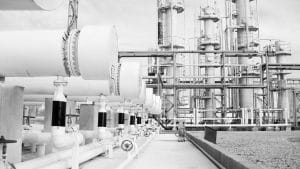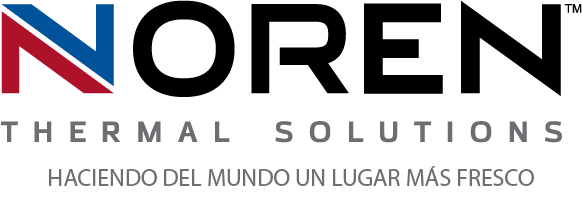 In many ways, the advancement of electrical thermal management hasn’t followed the same pattern as other technological advancements. For example, while applications like computer processing and automated equipment have grown increasingly more complex, the concepts used to innovative thermal management have become simpler. Compared to traditional HVAC and other solutions, which generate chilled air to circulate throughout the interior of an electrical enclosure, modern custom thermal solutions such as heat exchangers use simpler heat transfer methods to protect sensitive components. These methods are simpler in the fact that they transfer heat rather than overcome it, which means they can achieve higher levels of thermal management with much less effort.
In many ways, the advancement of electrical thermal management hasn’t followed the same pattern as other technological advancements. For example, while applications like computer processing and automated equipment have grown increasingly more complex, the concepts used to innovative thermal management have become simpler. Compared to traditional HVAC and other solutions, which generate chilled air to circulate throughout the interior of an electrical enclosure, modern custom thermal solutions such as heat exchangers use simpler heat transfer methods to protect sensitive components. These methods are simpler in the fact that they transfer heat rather than overcome it, which means they can achieve higher levels of thermal management with much less effort.
How they achieve eco-friendly cooling
Heat exchangers are designed to meet an application’s highly specific thermal management needs by absorbing and transferring electrical waste heat continuously. An eco-friendly cooling fluid flows through the heat pipes or cold plates of the exchanger, absorbing waste heat and carrying it away before dissipating it safely. Unlike the chemicals used in HVAC equipment, the fluid in a heat exchanger is eco-friendly (usually water) and does not need to be continuously refilled. In addition to requiring significantly less energy to operate than traditional solutions, heat exchangers also help companies minimize their risks of releasing pollutants into the environment.
Meeting the needs of most applications
Their ability to streamline thermal management made heat exchangers beneficial, but their high-performance capabilities and versatility are what have made them easily applicable to most industry applications these days. Because their heat transfer processes are simpler than HVAC methods, heat exchangers are typically smaller and more easily customizable, as well. This means they can provide high-performance thermal management in a wider variety of applications, including advanced technologies that offer minimal space, but require the highest levels of heat transfer. As technologies continue to advance and grow more powerful, their reliance on custom thermal solutions that can meet their heightened demands will make heat exchangers increasingly more important.
Promoting green energy efforts
Besides the immediate and long-term benefits that heat exchangers can provide companies in terms of productivity, overhead costs, and energy consumption, they’ve also had a significant impact on several other eco-friendly efforts. For example, heat exchangers can often solve the problem of how to efficiently transfer heat and energy generated by renewable sources, such as solar and wind power. For more information about innovating thermal management with the help of custom heat exchangers, call Noren Thermal Solutions in Taylor, TX, at 866-936-6736.







